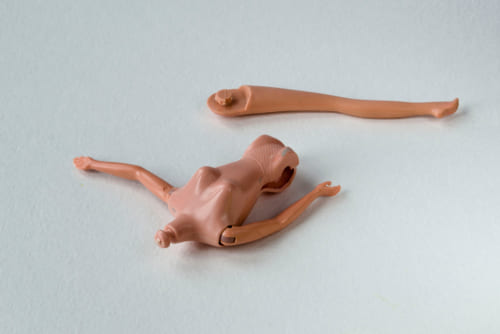Recent Blog Posts
Can I Sue If My Son Was Injured on My Neighbor’s Trampoline?
 Trampolines can be a lot of fun, but they are also dangerous. Young children typically do not understand the risks, so an adult should supervise trampoline play at all times. Families who own trampolines must take reasonable steps to prevent access to reduce the likelihood of accidents, but approximately 100,000 people are injured on trampolines every year in the U.S.
Trampolines can be a lot of fun, but they are also dangerous. Young children typically do not understand the risks, so an adult should supervise trampoline play at all times. Families who own trampolines must take reasonable steps to prevent access to reduce the likelihood of accidents, but approximately 100,000 people are injured on trampolines every year in the U.S.
If your son was injured on your neighbor’s trampoline, you may be able to obtain compensation by filing a premises liability claim. Case-specific factors will determine your eligibility, and a knowledgeable lawyer from Kaiser Law can tell you if you qualify.
What Are Common Trampoline Injuries?
Young children are more at risk than other age groups for sustaining severe injuries on trampolines, such as:
What Do Motorcycle and Pedestrian Accidents Have in Common? | IL
 At first glance, pedestrian accidents and motorcycle crashes may not seem like they have anything in common. However, there are several similarities, and all of them can result in complicated insurance claims for the victims.
At first glance, pedestrian accidents and motorcycle crashes may not seem like they have anything in common. However, there are several similarities, and all of them can result in complicated insurance claims for the victims.
Most people lack the legal knowledge and resources to represent themselves effectively when fighting for a reasonable settlement, and extreme injuries can prevent you from trying. An experienced lawyer from Kaiser Law can handle your claim and help you get the highest possible amount of compensation. Call now for your free consultation to discuss your case.
How Are Pedestrian and Motorcycle Accidents Similar?
Most of the similarities between these different kinds of accidents relate to the extreme vulnerability of pedestrians and bikers when involved in motor vehicle collisions:
Who Can I Sue If a Tire Blowout Caused My Truck Crash?
 The Chicago area has a lot of tractor-trailer traffic from the many carrier hubs in the region and the presence of major trucking routes. Truck accidents can happen for many reasons, often producing severe injuries that require extended recovery periods. Even though 18-wheelers have 18 tires, a truck crash can happen if only one blows out.
The Chicago area has a lot of tractor-trailer traffic from the many carrier hubs in the region and the presence of major trucking routes. Truck accidents can happen for many reasons, often producing severe injuries that require extended recovery periods. Even though 18-wheelers have 18 tires, a truck crash can happen if only one blows out.
If a blowout contributed to your truck accident, who is liable for paying your medical bills and compensating you for other losses? The answer to that question depends on the circumstances surrounding your case. A knowledgeable lawyer from Kaiser Law can identify all at-fault parties and help you obtain the compensation you deserve.
What Can Cause Tire Blowouts?
Tire blowouts contribute to causing many truck accidents every year. There are several factors that increase the likelihood of a tire blowout, including:
Understanding 10 Legal Terms in Personal Injury Cases
 If you are injured in an accident caused by someone else’s negligence, you may be entitled to compensation for your damages through a personal injury claim. During your claims process, you will likely encounter several unfamiliar legal terms. Understanding what they mean and how they affect your case is vital. Your personal injury lawyer from Kaiser Law can explain these and other relevant terms and what they mean for your case.
If you are injured in an accident caused by someone else’s negligence, you may be entitled to compensation for your damages through a personal injury claim. During your claims process, you will likely encounter several unfamiliar legal terms. Understanding what they mean and how they affect your case is vital. Your personal injury lawyer from Kaiser Law can explain these and other relevant terms and what they mean for your case.
Glossary of Terms Commonly Seen in Personal Injury Claims
Every accident is different with case-specific factors. These definitions are general, but they apply to most personal injury claims. When we discuss your case during your free consultation, your attorney from Kaiser Law can describe them in more detail, particularly how they may affect your case.
1. Civil Lawsuit
Personal injury cases typically begin with filing an insurance claim. If you cannot reach an acceptable settlement offer through negotiations, you may choose to file a civil lawsuit. This action puts the outcome of your case into a judge’s or jury’s hands. Your lawyer from Kaiser Law can increase your odds of success.
Can I Claim Workers’ Comp for Job-Related Stress?
 When people think of work-related injuries, they usually imagine things like broken limbs, carpal tunnel syndrome, toxic inhalation, forklift injuries, and more. Employees who suffer these injuries can sometimes claim workers’ compensation, which reimburses injured workers for medical expenses, lost wages, or both.
When people think of work-related injuries, they usually imagine things like broken limbs, carpal tunnel syndrome, toxic inhalation, forklift injuries, and more. Employees who suffer these injuries can sometimes claim workers’ compensation, which reimburses injured workers for medical expenses, lost wages, or both.
But what about non-physical injuries, like mental stress or anxiety? In today’s fast-paced corporate world, it is not uncommon for some employees to work under immense pressure. Can they claim workers’ compensation if that pressure leads to excessive stress and anxiety?
This article will explore those questions, but be sure to consult an Illinois workers’ compensation lawyer regarding the specifics of your case.
Does Workers’ Compensation Cover Mental Health?
Workers’ compensation covers mental health up to an extent. There is no clear-cut rule because there is no clear way to identify mental injuries and what causes them. Unlike a forklift injury where you can present an X-ray and show exactly where you suffered a bone fracture, mental injuries are hard to pinpoint.
What Can I Do If I Was Injured By Fireworks in Illinois?
 At a Fourth of July celebration last week, a South Carolina father named Allen Ray McGrew died after he placed a lit firework on his hat. The device exploded, killing him instantly.
At a Fourth of July celebration last week, a South Carolina father named Allen Ray McGrew died after he placed a lit firework on his hat. The device exploded, killing him instantly.
Mark McCormack, a resident of Wichita, suffered his own serious injury from using fireworks. While shooting off mortar shells one Independence Day, he failed to realize the cannon had bent. It went off in his hand, and McCormack was rushed to the hospital where he fought for his life. After a blood transfusion and surgery, McCormack woke up and realized doctors had amputated his hand and fourteen inches of his arm.
Fireworks can create beautiful displays, but they are also extremely dangerous. Because they can cause severe injuries, many states have at least some restrictions on their use and possession. Illinois is one of three states that bans most consumer fireworks.
What Is the Claims Process for a Car Crash Injury?
 Being injured in a car accident is a traumatic experience. Many times, injuries from collisions are severe and victims want to be compensated for damages resulting from the injuries. Not many victims, however, are aware of the process or know what steps to take. This adds confusion to an already confusing situation.
Being injured in a car accident is a traumatic experience. Many times, injuries from collisions are severe and victims want to be compensated for damages resulting from the injuries. Not many victims, however, are aware of the process or know what steps to take. This adds confusion to an already confusing situation.
A simple rule to follow is that when in doubt, consult an Illinois car accident attorney. This article will briefly explain the process for claiming compensation for damages after a car accident.
Take Stock of Your Injuries
The process begins with the accident that causes the injury. Account for your injuries. Notice how many there are and how severe they are. Also try to remember as much about the crash as possible, especially details that show it was the other driver’s fault. Writing down details as soon as possible can be very helpful later on.
Who Is Liable if My Child Was Injured By a Defective Toy?
 In 2022, emergency rooms treated an estimated 209,500 toy-related injuries. According to a report by the U.S. Consumer Product Safety Commission (CPSC), 76 percent of those occurred in children aged 14 or younger. Sixty-nine percent occurred in children aged 12 or younger, and 38 percent occurred in children aged four or younger.
In 2022, emergency rooms treated an estimated 209,500 toy-related injuries. According to a report by the U.S. Consumer Product Safety Commission (CPSC), 76 percent of those occurred in children aged 14 or younger. Sixty-nine percent occurred in children aged 12 or younger, and 38 percent occurred in children aged four or younger.
Injuries from defective toys range from mild to severe. Nearly half of toy-related injuries in 2022 were to the head and face. But who is liable for those injuries? Is it the children and their parents? Or is it the retailer or manufacturer’s fault?
This article will discuss the different types of defects and who you can sue for damages if your child was injured by a defective toy. Not every case is the same, so consult an Illinois product liability attorney regarding your specific injury.
Who Is Liable if I Get Injured at a Gym in Illinois?
 Injuries among gym-goers are common. In 2021, there were an estimated 409,224 injuries from exercise equipment. Such injuries included:
Injuries among gym-goers are common. In 2021, there were an estimated 409,224 injuries from exercise equipment. Such injuries included:
-
Bone fractures
-
Strains and sprains
-
Cuts
-
Bruises and contusions
Fitness centers are full of heavy weights, robust machines, and people moving at fast speeds. Sometimes, people are injured by exercise equipment because they are not familiar with how to use it. Other times, people are familiar with how to use the equipment but the machine is faulty.
If you have been injured at the gym, you may have a premises liability claim. However, this will depend on how well your attorney can prove the other party’s negligence.
How Do I Prove the Gym Was Negligent?
Negligence means that the party failed to take a reasonable amount of care to avoid an injury. If you want to claim damages from a gym where you were injured, you need to prove that the facility was negligent. For example, you would need to show that you were injured because of a defect in the machine. Furthermore, you would also need to show that the gym knew about the defect or should have known about it from a routine inspection.
Can I Sue Uber if My Driver Got Into an Accident While Texting?
 As the gig economy exploded in recent years, it gave rise to many legal questions. Are companies like Uber and Lyft responsible for the behavior of their drivers? If a driver gets into an accident, is the driver liable, or is Uber? Are these drivers considered employees or independent contractors?
As the gig economy exploded in recent years, it gave rise to many legal questions. Are companies like Uber and Lyft responsible for the behavior of their drivers? If a driver gets into an accident, is the driver liable, or is Uber? Are these drivers considered employees or independent contractors?
These questions and others developed into a new area of law called rideshare law. Rideshare law has become increasingly more complex, especially when it comes to personal injuries sustained in a rideshare. Anyone who has suffered such an injury should speak with a personal injury attorney who has experience with rideshare law.
This article will discuss your legal options if you were injured in an accident because your Uber driver was texting, also known as distracted driving.

 630-274-4400
630-274-4400












